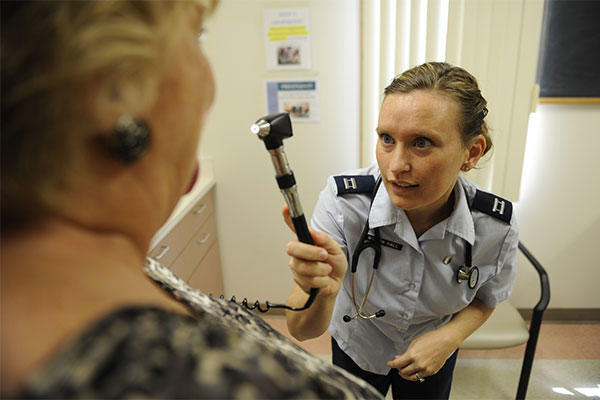Base amenities and healthcare are the two most valuable benefits to military spouses according to data from a new survey released today.
The online study, conducted by the Military Family Advisory Network (MFAN), surveyed about 1,500 individuals who self-identified as spouses about their military life experiences.
About 41 percent of those who responded said base amenities, such as commissaries and childcare, are their most valued benefits. About 32 percent said healthcare was most important. Support from non-profits and Morale, Welfare and Recreation (MWR) services came in third and fourth with about 15 percent each.
What surprised researchers, however, was the way in which benefits are intertwined. Respondents made it clear that the use of one benefit was largely dependent on the use of another. Patrons who use the commissary, for example, are also likely to access the Exchange on the same trip, they said.
"In a nutshell what we showed is that the programming families are accessing is really interconnected," said Shelley Kimball, an MFAN advisor who was the report's primary investigator. "With an open-ended study like this one, we realized that childcare can be the gate keeper to doctors' appointments."
That "web of support," Kimball said, highlights the potential harm of sweeping budget cuts to specific base services. Cutting commissary funding, the report summary said, could impact MWR services, since they receive funding from Exchange revenue.
"I really am hopeful that those in power are looking at this holistically and saying ‘if we touch this how will it affect all these other tendrils?'" she said.
The Defense Department last year rolled out a plan to cut commissary funding by two-thirds over a series of years. That plan was rejected by Congress as lawmakers await a report on potential cuts by the Military Compensation and Retirement Modernization Commission (MCRMC), due to be released early next month.
The MCRMC's upcoming report was a major driving force behind the MFAN study, said Shannon Razsadin, the organization's executive director. That body was not permitted to directly survey military spouses and family members while investigating the value of military benefits and developing their recommendations. The MFAN study's results were submitted to the MCRMC late last year.
While respondents were overall positive about their experience using military benefits, they did highlight ongoing problems with access the kind of support they need, the report's summary said. Healthcare, childcare and employment support all exist, they said, but are difficult to access for their specific needs. For example, long wait times were identified as being common for both medical care and childcare. And spouses have a difficult time accessing the kind of employment support help they actually need.
But the report's top recommendation focuses on military families' use of military related non-profits. Given the difficulty in accessing government-run programs, researchers are recommending that the Defense Department do more to expand their partnerships with outside groups that can provide those same services.
"Throughout the survey results, participants noted difficulty accessing programming like emergency care, pediatric healthcare, childcare, respite care, military treatment facilities, and mental health for adults and children," the report's summary says. "Further research should be completed to evaluate the efficiencies and effectiveness of government programs to then establish if programs are a worthwhile investment for military agencies, both in terms of meeting family needs as well as contributing to military readiness."
In the end, researchers hope the report's findings will help military families' voices are heard.
"I hope that this really gives military spouses and military families a seat at the table," Razsadin said. "We're hopeful that this information and this data are included in the conversation and are considered because military families haven't necessarily had the opportunity to share what they value and they need. It's necessary."
-- Amy Bushatz can be reached at amy.bushatz@military.com




























